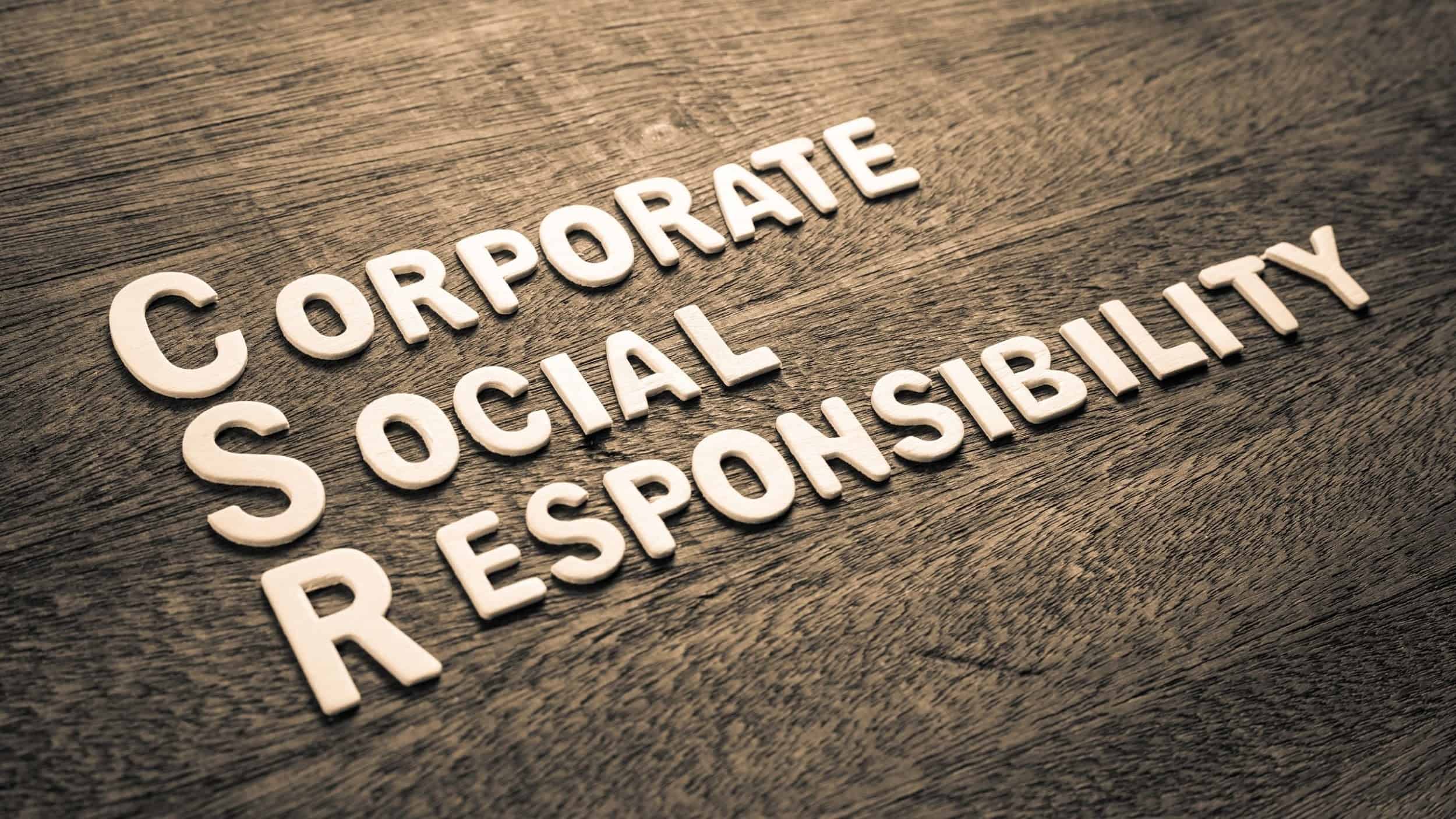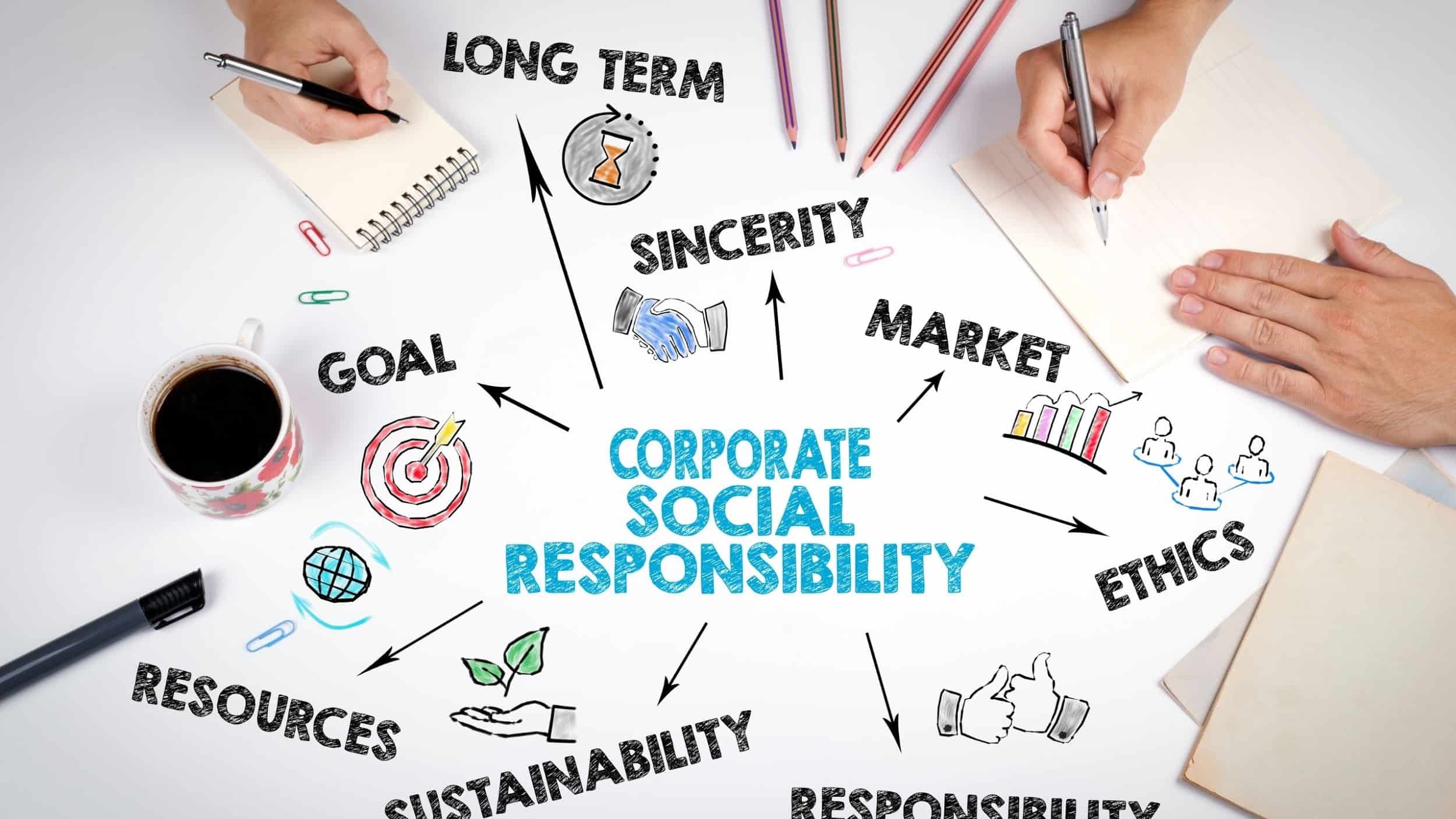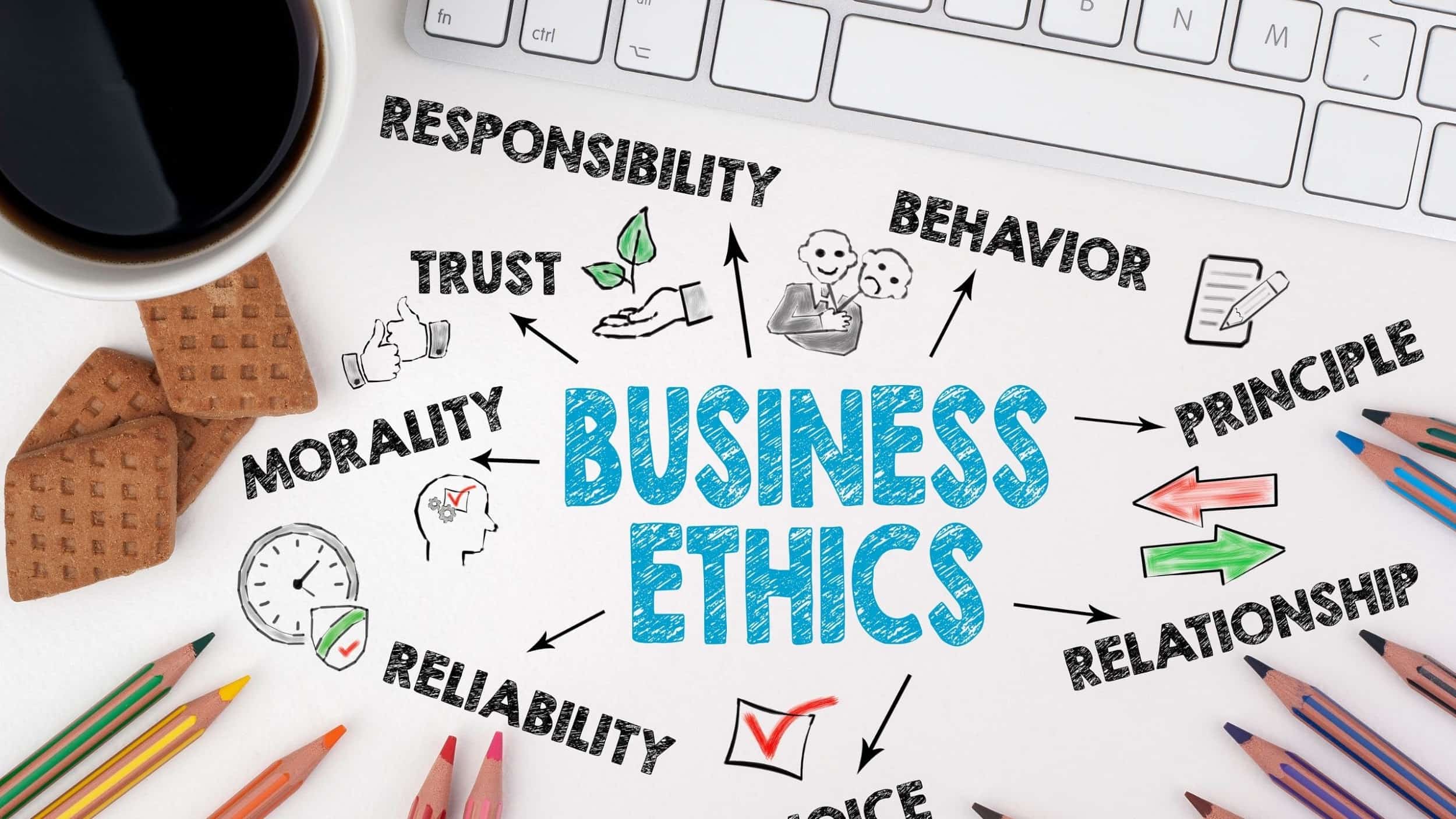Table of Contents
- How To Be More Socially Responsible?
- Why Corporate Social Responsibility (CSR) Matters to Businesses?
- The Bottom Line
- Why Is Social Responsibility Important in Marketing?
- How Social Responsibility in Marketing Works
- Example of Social Responsibility in Marketing
- The Importance of Business Ethics
- Can Corporate Social Responsibility Backfire On Businesses?
- When Corporate Social Responsibility Meets Moral Self Licensing
- The Dangers of Being Inauthentic
- The Bottom Line

Social responsibility implies that companies must behave in a way that benefits society, in addition to maximising shareholder value. For investors and consumers who pursue investments that are not only profitable but also contribute to the wellbeing of people and the environment, social responsibility has become extremely valuable. Sceptics, nevertheless, argue that society is not considered a stakeholder by the fundamental nature of industry. Let’s find out how you can make your business more socially responsible if that’s the route you want to take and let’s also take a look at a few other points of view and some examples of responsible companies and what they are doing for the social and environmental aspects of their company’s.
How To Be More Socially Responsible?

Social responsibility suggests that there is an obligation for individuals and corporations to behave in the best interests of their community and society as a whole. Social responsibility is sometimes better known as corporate social responsibility (CSR), as it refers to companies and the way they affect society.
The essence of this idea is to enforce policies that foster an ethical equilibrium between the dual mandates of striving for productivity and serving society as a whole. These policies may be either commissioned (philanthropy-money, time, or resource donations) or omitted (e.g. “go green” measures such as reducing greenhouse gases or complying with pollution-limiting EPA regulations). Many corporations have made social responsibility an integral part of their business models, such as those with’ green’ policies, and they have done so without sacrificing profitability.
In 2018, the top socially responsible corporations in the world were listed by Forbes. The technology giant Google headed the list, closely followed by The Walt Disney Company and Lego, which revealed in March 2018 that it would start making its parts from plant-based sources.
In addition, before making an investment or purchase, more and more investors and customers are factoring in the dedication of a business to socially responsible practices. As such, the prime directive-maximisation of shareholder capital will benefit from accepting social responsibility. There is, likewise, a moral imperative. Future generations would be influenced by behaviour or lack thereof. Put clearly, it is just sound corporate practice to be socially responsible, and a failure to do so could have a deleterious impact on the balance sheet.
In general, as opposed to being required by the government to do so through regulation, social responsibility is more effective when a business takes it on voluntarily. Social responsibility can raise the morale of companies, and this is particularly true when a business can involve workers with its social causes.
Why Corporate Social Responsibility (CSR) Matters to Businesses?
Companies are increasingly focused on social responsibility, whether championing women’s rights, protecting the environment or seeking to reduce poverty, at a local, national or global level. From an optical point of view, socially conscious businesses are projecting more desirable images for both customers and shareholders, which have a positive effect on their bottom line.
KEY POINTS
- Being socially conscious will improve the reputation of a company and create its own brand.
- Social responsibility empowers workers to use the organisational tools at their disposal to do good.
- Formal corporate social responsibility initiatives will improve employee morale and increase the efficiency of the workforce.
Customers Matter
The implementation of socially responsible policies goes a long way towards gaining and retaining customers, which is important for a company’s long-term success. In addition, many people would happily pay a premium for products, believing that part of the income will be funnelled to social causes close to and dear to them.
Companies will also see enhanced foot traffic if they strengthen the surrounding environment. For example, banks offering loans to low-income households are likely to see an increase in business as a direct result.
Other Key Practices
Socially conscious businesses aim to recruit workers who are willing to make a difference around the world — in addition to merely earning a paycheck. For large organisations, there is strength in numbers, where joint efforts can produce substantial results, improve the morale of the workplace and increase efficiency.
Community-oriented businesses often frequently enjoy a leg on their rivals, due to superior brand imagery. For example, Tesla Inc. (TSLA) CEO Elon Musk has successfully attracted environmentally friendly customers with its line of state-of-the-art electric cars and green automotive goods.
Examples of Corporate Social Responsibility
Coca-Cola Company
In 2010, Coca-Cola launched a 5 by 20 campaign to empower women across the globe.
The business said:
Via 5 by 20 initiatives around the world, we equip women entrepreneurs to address social and economic barriers by offering business skills training, access to financial services and assets and networking with peers and mentors. Women involved in 5 by 20 operate in positions around our supply chain, including retailers, manufacturers, distributors, craftsmen and more.
Visa Inc.
Through its Financial Inclusion Programme, Visa has developed creative ways of taking digital cash to areas in the world where financial infrastructure does not exist, or to people who do not have access to the financial system, such as residents of many developing countries. The company stated:
Today, about half of the adult world lives in the informal economy, dealing exclusively with cash. All of these estimated two billion people are faced with financial obstacles that make life precarious, costly and inefficient. Financial inclusion aims to bring people out of poverty, to create productively empowered citizens, to promote business opportunities and to boost economic development.
The Bottom Line
Socially conscious businesses promote strong brand awareness, improve customer satisfaction and retain high-level employees. These are among the keys to achieving improved profitability and long-term financial success.
Why Is Social Responsibility Important in Marketing?
The idea of social responsibility is that corporations should be good people, combining their money-making operations with actions that support society, whether local, national or global. Social responsibility in marketing involves focusing on attracting consumers who want to make a positive difference in their purchases. Many businesses have incorporated socially conscious elements of their marketing campaigns as a way of supporting the society through beneficial programmes and goods.
Interestingly, philanthropic can also be a strong business method. There’s a lot of research. According to a presentation entitled “The Power of a Values-Based Strategy” by Forrester Research, a market research firm that advises corporate clients, “about 52 per cent of U.S. customers place emphasis on their buying choices” in pursuit of products that proactively endorse ideas and values associated with their own.
In addition, the Nielsen research, which surveyed 30,000 customers throughout 60 countries in the world, we found that 66% of consumers were willing to pay more for products from companies that showed social commitment. Eventually, the public relations and marketing firm Cone Communications study found that 87 percent of Americans would buy the product because their company advocated a topic they cared for.
How Social Responsibility in Marketing Works
Recycled packaging, campaigns that raise awareness of community problems and issues, and steering portions of proceeds to charitable organisations or projects are examples of social responsibility marketing techniques. For example, a clothing company marketing team may launch a campaign that encourages customers to purchase a set of socks versus just one pair of socks. Using this model, the company will donate a bundle of socks to international military personnel or to local charities to help the homeless for each bundle sold. As a result of these contributions, the organisation labels itself as socially conscious and charitable, which eventually draws consumers who are inspired by socially responsible commitments and who want to promote the welfare of the community.
Corporate accountability goes hand-in-hand with socially responsible activities. For example, managers, employees, shareholders and stakeholders must exercise ethical actions and join the group in encouraging responsible marketing activities. Only with regard to appearance or greenwashing, the practice of promoting misleading, environmentally friendly practises or goods suggests to consumers that the organisation is not committed to social responsibility. Instead, such actions will eventually harm the brand and the success of the business. Consumers will also see through gimmicks, slogans, or attempts that are not sincere or efficient. In fact, 65 percent of the respondents to the Cone study say they’re going to research the company’s stance on the issue, to see if it’s true.
Example of Social Responsibility in Marketing
Some critics challenge the definition of social responsibility in marketing, noting that these widely advertised, costly campaigns are colourful but very limited (both in nature and duration) and do little to eradicate the root causes of the problems. They wonder if it wouldn’t be more effective if companies — or consumers, for that matter — just donated funds directly to charities or philanthropic causes.
Certainly, the tactics that tend to be most successful are those in which a business finds a way to connect its core product directly to its socially conscious initiative and also to expand its efforts. The famous label of TOMS is a case in point. The shoemaker launched his “one for one” campaign in 2006: for every pair of slips or boots he purchased, TOMS donated a pair of shoes to a child in need. Similarly, every pair of glasses sold paid for the eye test and care of the impoverished individual.
While TOMS has given millions of shoes and eye care, and the buy-one-donate model has been embraced by other fashionable brands, the founder of TOMS, Blake Mycoskie, has faced a lot of criticism about the materialistic approach to addressing poverty, and also about dumping shoes for children who may not have wanted them. Since 2019, TOMS estimates that it has donated more than 95 million pairs of shoes, aided in 780,000 sight restorations, and delivered 722,000 weeks of clean water.7 The organisation also has an eye to improving the infrastructure: extended to include coffee and more than 722,000 weeks of safe water.
The Bottom Line
While an initial investment may include the sharing of income or contribution to those in need, social responsibility in marketing encourages an improved corporate reputation that can have a substantial effect on profitability and even productivity.
The Importance of Business Ethics
The moral and ethical belief system that governs the values, actions and decisions of a business organisation and individuals within that organisation is known as business ethics. Some ethical guidelines for companies are codified in law; environmental legislation, minimum wage and limits on insider trading, collusion and corruption are all examples of the government imposing minimum standards for business ethics. What is defined as business ethics in history has changed over time, and different aspects of ethics are important to different businesses.
Business Ethics in Leadership
The management team of any business sets the tone for how the whole organisation works on a day-to-day basis. If the dominant management philosophy is focused on ethical practises and actions, leaders of an organisation will lead workers by example and direct them to make decisions that are not just beneficial to them as individuals, but also beneficial to the organisation as a whole. Building on an ethical conduct base helps to establish long-lasting positive results for an organisation, including the ability to attract and retain highly skilled people and to develop and sustain a positive image within the local and international community. By running a business in an ethical manner from top to bottom, owners create a stronger relationship between those on the management team which further creates cohesion within the organisation.
Employee Ethics
When management leads an organisation in an ethical manner, workers obey these steps. Employees make better choices in less time with corporate ethics as a guiding principle; this increases efficiency and the overall morale of employees as workers complete their work in a manner that is founded on fairness and dignity, the whole company profits. Employees who work for a company that needs a high standard of corporate integrity in all aspects of operations are more likely to conduct their duties at a higher level and are much more likely to remain loyal to that organisation.
Ethics Vary by Industry
Business ethics vary from industry to industry, from country to country. The essence of the company activities has a huge effect on the ethical concerns that it must solve. For example, an ethical dilemma occurs for investment brokerage when the right choice for a client and their money does not match what the brokerage pays the highest commission. A media company that produces TV content for children may feel an ethical responsibility to promote good values and to avoid colourful material in its programming.
A striking example of industry-specific business ethics is in the field of energy. Companies that generate energy, especially non-renewable energy, face unrelenting criticism of how they handle the environment. One misstep — whether it is a small coal ash spill at a power plant or a major tragedy such as the 2010 BP (BP) oil spill — forces a corporation to respond to various regulators and to society at large as to whether it has a responsibility to preserve the environment in an ambitious pursuit of higher profits.
A strict explicitly defined system of environmental ethics is of vital importance for an energy business if it is to succeed in a world of increased regulation and public awareness of environmental issues.
Responsible companies such as Amazon ( AMZN) and Google (GOOGL), which run most of their online activities, are not monitored for their environmental effects as oil companies such as BP and Exxon (XOM) do. However, when it comes to preserving the privacy and protection of their clients, their ethics are examined very closely.
Marketing is a particular field in which technology firms must make difficult ethical choices. Advances in data mining technology allow businesses to track their customers’ movements online and sell that data to marketing firms or use it to match customers with advertising promotions. Many people see this form of operation as a big breach of privacy. However, such consumer data are invaluable to companies since they can use it to dramatically raise income. Thus, an ethical question arises: to what degree is it acceptable to spy on consumers ‘ online lives to achieve a marketing advantage?
Benefits of Business Ethics
The value of business ethics goes far beyond employee loyalty and productivity or the strength of a management team bond. As with all corporate initiatives, the ethical functioning of an organisation is directly linked to success in both the short and long term.
The credibility of a corporation in the local community, other companies and individual investors is of utmost importance in deciding if a company is a worthwhile investment. If a corporation is considered not to act ethically, investors are less likely to purchase or otherwise endorse its activities.
Companies are increasingly encouraged to be ethical, as the field of socially responsible and ethical investment continues to expand. The growing number of investors looking to invest in ethically running businesses is pushing more firms to take this problem more seriously.
Can Corporate Social Responsibility Backfire On Businesses?
As a way to find, recruit and maintain talent, executives have long embraced corporate social responsibility, from corporate contributions granted on behalf of a corporation to dedicated days for workers to volunteer in local communities.
An employee participating with colleagues in a charity 5-mile run will be proud of raising funds for a good cause while strengthening their ties with coworkers. And investing in CSR makes it possible for businesses to produce lasting social and environmental change.
But researchers are discovering disadvantages to how workers respond to these measures as CSR has become integrated into the workplace and even into some of the products that we love to buy.
When Corporate Social Responsibility Meets Moral Self Licensing
There is a long tradition of engaging in corporate social responsibility. British firms encouraged social spending at work in the 19th century to help boost their corporate reputation and to combat internal unrest over poverty and bad working conditions. Since then, particularly since the 1990s, interest in CSR initiatives has increased, and CSR is still often used as a marketing tool.
Large businesses should be particularly vigilant about the integration into company activities of environmental or social causes. According to KPMG ‘s 2017 corporate responsibility monitoring survey, more than 90 percent of the 250 largest global corporations by sales currently post comprehensive annual reports of their corporate responsibility activities.
There is a long tradition of engaging in corporate social responsibility.
British firms encouraged social spending at work in the 19th century to help boost their corporate reputation and to combat internal unrest over poverty and poor working conditions.
Since then, particularly since the 1990s, interest in CSR initiatives has increased, and CSR is still often used as a marketing tool.
Large businesses should be particularly vigilant about the integration into company activities of environmental or social causes.
Detailed annual reviews on their corporate responsibility activities are now issued by more than 90 percent of the 250 largest global corporations.
The Dangers of Being Inauthentic
CSR may be to blame for employees or customers’ sense a company is being inauthentic.
Most hotels cite environmental issues for not changing towels on a regular basis, but this may put off individuals who believe the primary motive of the hotels is to save on their overall costs as a business.
A shoe brand that donates its goods to underprivileged individuals can seem sincere to the customer, he says; but if customers believe that it donates products strategically, the brand might damage its reputation as others may not agree with their approach or interpretation of social responsibility.
Not being inclusive in your business and social responsibility can also cause division both inside and outside of the workplace so businesses need to be careful they have considered the beliefs and morals of others and ensure they are not running a social responsibility campaign for their own vanity. No one likes a virtue signaller either so whatever the message being portrayed alongside the socially responsible changes – the CEO’s, owners, directors and team members must demonstrate their genuine belief in it, flying by private jet and then rewarding employees for walking to work to save the planet isn’t going to wash well with some of your employees.
Favouring certain ethnicities has also caused a lot of backlash with customers from some businesses who claimed to have boycotted companies based on their ‘woke’ views.
While research findings indicate that CSR can have powerful, positive effects, businesses should keep in mind the findings on moral licencing and monitor employee behaviour throughout CSR campaigns. Because so much behaviour is instinctively driven, it could help combat the bias towards a company initiative by simply making employees aware of the tendency to pair good actions with bad.
The Bottom Line
Not everybody thinks corporations need to have a social conscience. Economist Milton Friedman said that “company social obligations are noteworthy for their methodological looseness and lack of rigour.” Friedman believed that social responsibility would only be felt by individuals. Businesses can not, by their very existence. Some experts think that the very point of being in business defies social responsibility which should be profit above all else. Profit above all else encourages company growth, investment in new technology and the ability to hire more people.
With that being said, consistent ethical conduct can lead to an increasingly positive public profile, and a few other factors are as important to future investors and current shareholders. In order to maintain a positive reputation, companies must be committed to working on an ethical basis as it relates to the treatment of workers, respect for the environment and fair market practises in terms of price and customer treatment.
With all this in mind, it is clear that businesses will need to find a good balance in their business and social responsibility aims and objectives and they should prepare for some kind of backlash if they do not properly consider its effects.














